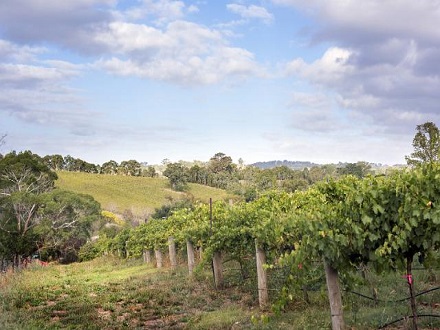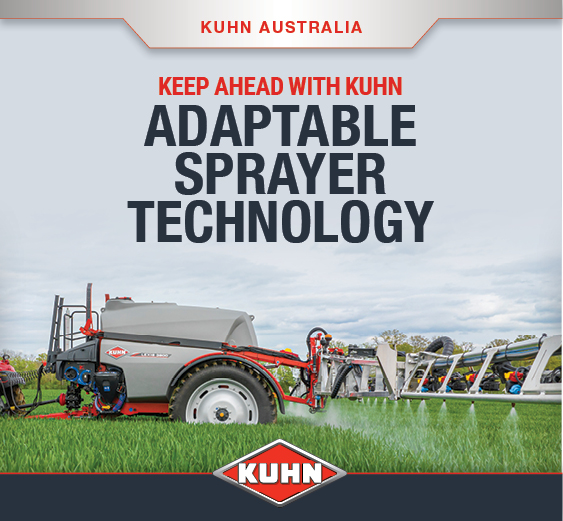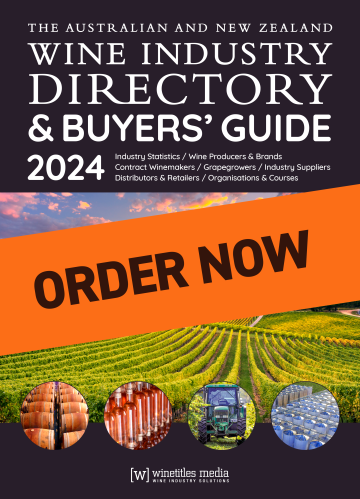Australian Grape and Wine Inc (Australian Grape & Wine) has welcomed the Australian Competition and Consumer Commission’s (ACCC) interim report into Australia’s wine sector, released today.
“The release of this interim report is an important milestone in the ACCC’s process of taking a deep and comprehensive look at the Australian wine sector,” said Tony Battaglene, chief executive of Australian Grape & Wine.
“We appreciate the ACCC’s efforts to engage closely with Australian Grape & Wine and our members, and we look forward to continuing this collaborative approach”.
The interim report covers a broad range of issues relating to the dynamics between winegrape growers and winemakers in Australia, and presents a set of draft findings and recommendations for consideration by the sector.
The ACCC interim recommendations
The ACCC is seeking consultation on the following eight interim recommendations before publishing its final report in September 2019. The recommendations relate to the warm climate regions, which have been the focus of the market study. However, the ACCC believes recommendations 1, 3, 6, 7 and 8 may also provide benefits to cool climate regions.
Quality assessments
1. The ACCC recommends the National Measurement Institute (NMI) and the Australian Wine Research Institute (AWRI) work with industry to develop uniform standards for testing and measuring grape sugar levels and colour. Winemakers’ testing equipment and processes would then be capable of being independently audited by the NMI, including in response to complaints from growers.
2. The ACCC recommends that winemakers should use well-documented and objective testing and sampling techniques for quality assessments. Despite the limitations to objective measures, and the importance of sensory assessment, the ACCC considers that reliance on subjective measures to determine payment amounts should be decreased wherever possible.
3. The ACCC recommends that supply agreements should clearly outline the testing and sampling methods that winemakers will use to assess grape quality. This will increase the transparency regarding quality testing methods, allowing growers to make more informed decisions when entering into agreements.
Price transparency
4. The ACCC recommends that winemakers be required to provide indicative prices to an independent body by 8 December for all grapes intended to be purchased
from growers in warm climate regions during the subsequent harvest. The independent body would then make all pricing information simultaneously available (publicly) on 15 December [or alternative dates considered suitable by industry]. Winemakers would also be required to provide indicative prices to their growers on this date. Indicative prices should be provided to an independent body and released simultaneously, to avoid the risk that this increased price transparency could result in the largest winemakers using indicative pricing announcements in a concerted manner which could inhibit price competition.
5. The ACCC recommends that, after communicating final prices directly to growers, winemakers be required to provide final prices (both the non-quality adjusted price and a quality-adjusted weighted-average price) to an independent body which will then make that pricing information publicly available on 1 May [or another date considered suitable by industry]. As above, the ACCC recommends that this applies to all grapes purchased from growers in warm climate regions. This would increase visibility over final prices offered by each winemaker over time and increase competition between winemakers in the medium term. In relation to recommendations 4 and 5, the ACCC seeks industry feedback regarding:
- whether Wine Australia would be the most appropriate body to receive and publish pricing information and if not, what alternative body would be appropriate
- whether this requirement should be legislated or alternatively a requirement of the Code whether this requirement should exclude winemakers under a certain size
- whether prices under certain supply agreements should be excluded (such as fixedprice multi-year agreements)
- whether prices should be published without identifying the winemakers who provided the price
- whether the suggested dates are appropriate dates for the publication of the relevant
prices.
Payment periods
6. The ACCC recommends that long-term payment periods should be phased out of standard form contracts and an industry standard be introduced to require payment in full for grapes no later than 30 days after delivery. The ACCC considers that an appropriate means of introducing this change is through amending the requirements of the Code, as well as through amendments to SA WGI Act. The ACCC seeks industry feedback regarding:
- any types of winemakers or supply agreements that should be exempt from new requirements, such as winemakers under a certain processing capacity
- the timeframe for transitioning to 30 day payment terms.
The Voluntary Code of Conduct
7. The ACCC recommends that the Code be substantially strengthened, and that all winemakers in Australia with crushing capacities above 10 000 tonnes become signatories to the Code.
The Code should be amended to:
- provide a structured process for the review of adverse quality assessment decisions made at the winery (including at the weighbridge)
- provide a structured process for arbitration of contractual disputes, as well as other types of disputes that may arise out of supply agreements. This will improve access to impartial dispute resolution procedures and help address the power imbalance between the two parties
- guarantee equal representation of growers (including grower representative bodies)
and winemakers on the Code Management Committee.
The ACCC will review the progress of the industry in adopting the final recommendations approximately 12−18 months after the release of the final report, and if winemakers do not sign up to the Code, the ACCC may recommend to Government that the code be made mandatory. The ACCC seeks industry feedback regarding:
- the ACCC’s position of not recommending a mandatory code of conduct at this time
- an appropriate arbitration model that ensures disputes are resolved fairly, efficiently and without imposing significant costs on the parties
- the feasibility of taking, holding and testing retention samples if a winemaker downgrades or rejects a delivery of grapes in order to assist dispute resolution
- potential changes to the processes and timeframes for dispute resolution under the Code.
Contracting practices
8. The ACCC recommends that winemakers review their standard form contracts and remove any unfair contract terms. The ACCC has identified a number of potential unfair contract terms in supply agreements and may take enforcement action against winemakers who retain unfair terms in standard form contracts. A careful review of contract terms by winemakers is likely to result in greater compliance with the unfair contract terms laws.
The interim report can be found here and the ACCC will be accepting submissions until Friday 28 June 2019.
















